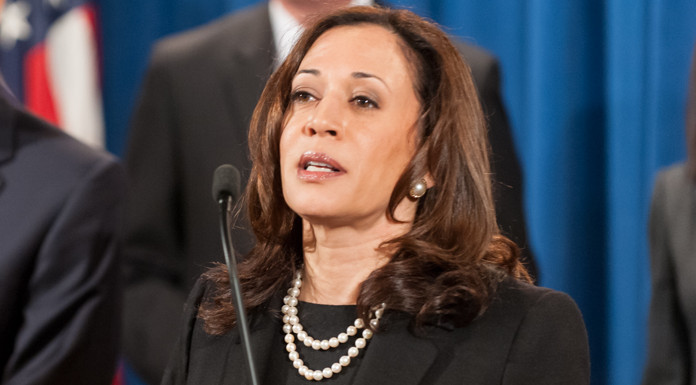Sign up for the daily CJR newsletter.
Joe Biden’s selection of Kamala Harris as his running mate—a thrillingly historic choice, no matter your politics—has delivered a restart of the 2020 campaign cycle. Since March, election reporters have mostly been sitting on their hands, watching the pandemic subsume their beat. Now their instinct is to pick up where they left off—to wallow in the trivia of the candidates’ personalities and polls. My advice: don’t do it.
You could see the muscle memory kicking in on day one of the Harris coverage. First came the ridiculous speculation on media Twitter, based on flight data, about whose private planes were descending into Delaware. Once Biden made his announcement—which, notably, not a single political reporter scooped—the game was on. Did Harris apologize during the vetting for ripping Biden over his opposition to integrating schools through busing? How many candidates were interviewed and by whom? What would choosing Harris mean for the 2024 and 2028 presidential campaigns? In the New York Times, an examination of Harris’s policy stances was treated like a sidebar. CNN carried Donald Trump live as he gave his reaction to the press and, instinctively, used a sexist slur to describe Harris; more vileness is no doubt forthcoming. Acolytes of the president foreshadowed that the next three months would involve a radical takeover of the Democratic Party.
Must we go back to where we were early this year, before the coronavirus and Derek Chauvin, a white police officer, brutally killed a Black man named George Floyd? America is in the midst of a deadly pandemic and an uprising for racial justice—why should journalism act as if the spring and summer never happened?
It doesn’t have to be this way. On the eve of Trump’s inauguration, I wrote an open letter, with misguided optimism, about what to expect from a newly energized, independent White House press corps. We would set the ground rules, I wrote then. We would shape the narrative. We would decide which stories most needed telling. How naive I was. Within weeks of Trump taking office, the status quo of political reporting resumed and grew ever more insidious. For too many newsrooms, Trump’s Twitter feed became the assignment desk. Trump’s lies—and those of his lackeys (including at Fox News, which became the nation’s most-watched cable network)—were given credence they never deserved. Political reporting, especially on television, became an exercise in hate-watching. The spectacle reflected nothing about the experience of living in a torn, dysfunctional country.
By placing Trump at the center, the press was beholden to his whims and follies and cultivated distractions. He is a fount of misinformation; covering his every move is perilous. That is not a problem new to Washington, of course—as Michael Herr, who was the Vietnam correspondent for Esquire, wrote in his 1977 book, Dispatches, “It was inevitable that once the media took the diversions seriously enough to report them, they also legitimized them.” He went on, “The press got all the facts (more or less); it got too many of them. But it never found a way to report meaningfully about death.” His subject was a war; ours is the ongoing epidemic of police brutality against Black people and now the coronavirus.
Recently, when the pandemic froze the campaign and protesters filled the streets, we experienced a reprieve: officialdom was stripped of its agency. Journalists recognized the futility of reporting on an emergency from inside an administration that tells us the opposite of what we see happening in our hospitals. Police information—never all that worthy of trust—was deemed an unreliable source on the demonstrations. As five million people became sick, and more than 162,000 died, many reporters decided to focus less on stock-market analysis than on the human beings facing destitution. The disinformation streaming from officials was rightfully hectored, then ignored.
For those of us disillusioned by the status quo of political reporting, the past five months have been, in that one sense, freeing, as we’ve been spared the vacuous town halls and inane analysis and empty prime-time speculation. Instead, we have seen some magnificent journalism that takes America’s problems seriously. Ed Yong, of The Atlantic, has covered the coronavirus as a signifier of the country’s systemic inequities. Nikole Hannah-Jones has broken down what is owed Black Americans for centuries of racism. The team at the Marshall Project, working with the Associated Press, has embarked on the task of chronicling all those who have contracted the coronavirus while in prison—ninety thousand so far—as lawyers argue for the early release of incarcerated people. For CJR, Betsy Morais and Alexandria Neason have argued in a brilliant two-part (so far) essay that these stories connect to every facet of American life, and form the basis of the campaigns. The election of the president need not be siloed into a narrative about superficial campaign machinations.
The American people are living on the edge of death and economic despair. Those are the stakes of the 2020 election, one whose integrity is in jeopardy thanks to the hypocrisies of Silicon Valley and the influence of foreign (and domestic) actors, on top of voter suppression—by online disinformation campaigns and simpler means (including manipulating the post office). The press must look past the campaign coverage that was and embrace its role as a safeguard of democracy. We have to tell the whole story of the American experience, not merely the horse race of candidates for high office. That’s the only way journalism can regain its rightful place as a trusted institution.
Has America ever needed a media defender more than now? Help us by joining CJR today.







